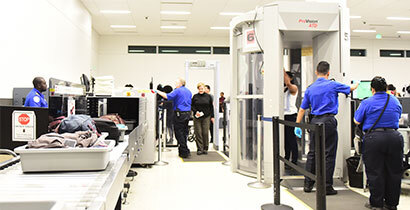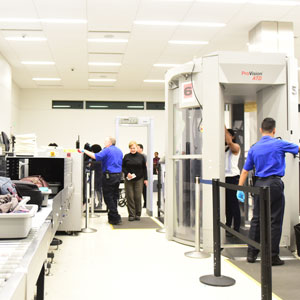

On May 10th, 2023, Governor Ron DeSantis Signed Senate Bill 1718 Into Law. What Is Florida Senate Bill 1718?
On May 10, 2023, Governor Ron DeSantis signed Senate Bill 1718 (SB 1718) into law. This made for one of the strictest immigration measures enacted at the state level in the U.S. SB 1718 was introduced in response to concerns about illegal immigration and perceived shortcomings in federal border policies.
The law officially took effect on July 1, 2023, and introduced several significant provisions targeting undocumented immigrants and employers. Key elements include:
Mandatory Use Of E-Verify
Employers are now required to use the E-Verify system to confirm the immigration status of their workers. Failure to comply with this can result in penalties ranging from fines to suspension of business licenses.
Penalties For Transporting Undocumented Immigrants
The law also makes it illegal to knowingly transport undocumented immigrants across state lines, imposing strict penalties on those found in violation.
Invalidation Of Out-Of-State Driver’s Licenses
SB 1718 invalidates any driver’s licenses issued by other states to undocumented immigrants. This provision aims to prevent individuals from using such licenses for identification purposes in Florida.
Restrictions On Healthcare And Other Services
The law imposes further limitations on access to certain public services and benefits for undocumented immigrants.
SB 1718 is seen as one of the toughest state-level laws aimed at curbing illegal immigration, drawing both strong support and criticism, especially concerning its impact on businesses, immigrant communities, and overall state enforcement efforts.
How Does Senate Bill 1718 Penalize Businesses Who Have Employed Undocumented Workers?
Senate Bill 1718 imposes strict penalties on businesses that employ undocumented workers by requiring the use of E-Verify to confirm employment eligibility. Employers who fail to use E-Verify can face fines of $1,000 per day.
The bill mandates that employers verify a new employee’s eligibility within three business days of their first day of paid work. Private employers with 25 or more employees, as well as public agencies, must use the federal E-Verify system to comply with the law.
Under the law, it is also illegal for employers to continue employing unauthorized workers once they become aware of their undocumented status.
Can Immigrants Who Face Charges Under Senate Bill 1718 Apply For Asylum Or Other Forms Of Relief?
Immigrants facing charges under Senate Bill 1718 can indeed still apply for asylum or other forms of relief, as these processes are governed by federal law.
State legislation does not prevent immigrants from seeking protection or relief through federal programs, whether it be via asylum, T visas for victims of human trafficking, U visas for victims of specific crimes, or any of the many other options available to them.
Despite the penalties imposed at the state level, immigration relief applications are managed by federal authorities, allowing individuals to seek protections based on their specific circumstances.
What Legal Options Do Undocumented Immigrants Have If They Face Deportation Under Senate Bill 1718?
Undocumented immigrants facing deportation under Senate Bill 1718 have several legal options. Despite the state’s strict measures, they may, as mentioned, apply for federal immigration relief, including asylum, T visas, U visas, or cancellation of removal if they meet eligibility criteria.
Victims of abuse or domestic violence may qualify for self-petition under the Violence Against Women Act (VAWA), which allows them to pursue legal status without relying on their abuser. These avenues provide potential protection and legal pathways during deportation proceedings.
Can Senate Bill 1718 Affect A Family’s Chances Of Getting Legal Residency For Undocumented Relatives?
SB 1718 does not directly affect a family’s chances of obtaining legal residency for undocumented relatives. However, it may have an indirect impact. For instance, if a family member is placed in removal proceedings, Immigration and Customs Enforcement (ICE) could also investigate other undocumented relatives in the same household, potentially leading to deportation. Although possible, this isn’t necessarily common.
Tried And True Experience
Early in my career, I had a case where a client was facing deportation after being involved in a car accident. Despite having his entire family in the U.S., another attorney had told him deportation was inevitable. When he came to us, I felt a deep sense of responsibility to fight for his future and his family’s well-being.
After thoroughly reviewing the case, we realized he was eligible for cancellation of removal under the 10-year law. We were eventually able to successfully argue that his continued stay was immensely significant for his family. Fortunately, against the odds, we prevented his deportation. This experience taught me an invaluable lesson that I apply to every case I handle: no matter how difficult it seems, there’s always a potential path forward.
Still Have Questions? Ready To Get Started?
For more information on What Senate Bill 1718 Means For Immigration In Florida, an initial consultation is your next best step. Get the information and legal answers you are seeking by calling (305) 907-6151 today.
